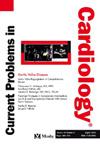A review regarding the article ‘Cardiovascular outcomes of sodium-glucose co-transporter 2 inhibitors use after myocardial infarction: A systematic review and meta-analysis of randomized controlled trials’
IF 3
3区 医学
Q2 CARDIAC & CARDIOVASCULAR SYSTEMS
引用次数: 0
Abstract
Myocardial infarction (MI) without established heart failure (HF) represents a distinct high-risk condition that is not sufficiently represented in other trial populations. Early intervention with disease-modifying therapies, such as Sodium-Glucose Co-transporter 2 inhibitors (SGLT2i), could potentially prevent progression to chronic HF in these patients. Prior trials involving patients with type 2 diabetes mellitus (T2DM), HF, or nephropathy have predominantly focused on stable outpatients and have generally excluded patients with recent acute cardiovascular events. While there is a growing interest in the potential benefits of SGLT2 inhibitors in the acute MI setting, further research is essential to determine their efficacy and safety in this patient population. This will require well-designed, targeted clinical trials that specifically address the unique characteristics and needs of patients with acute MI, including those with new onset left ventricular dysfunction, transient HF, or concurrent T2DM. Furthermore, the safety profile of SGLT2 inhibitors in post-MI patients appears to be favorable, as they have been found to have a comparable incidence of serious adverse events to placebo. This is an important consideration, as safety is a paramount concern when introducing new therapies, especially in a vulnerable patient population like those recovering from an acute MI. It is important to conduct further research to determine whether the early introduction of SGLT2 inhibitors post-MI can lead to similar benefits as those observed in patients with T2DM and established cardiovascular disease.
关于“心肌梗死后使用钠-葡萄糖共转运蛋白2抑制剂的心血管结局:随机对照试验的系统回顾和荟萃分析”这篇文章的综述。
心肌梗死(MI)没有确定的心力衰竭(HF)是一种明显的高风险疾病,在其他试验人群中没有充分的代表。早期干预疾病改善疗法,如钠-葡萄糖共转运蛋白2抑制剂(SGLT2i),可以潜在地防止这些患者进展为慢性HF。先前涉及2型糖尿病(T2DM)、心衰或肾病患者的试验主要集中在稳定的门诊患者,通常排除近期有急性心血管事件的患者。尽管人们对SGLT2抑制剂在急性心肌梗死中的潜在益处越来越感兴趣,但需要进一步的研究来确定它们在这类患者群体中的有效性和安全性。这将需要精心设计的、有针对性的临床试验,专门针对急性心肌梗死患者的独特特征和需求,包括那些新发左心室功能障碍、短暂性心衰或并发T2DM的患者。此外,SGLT2抑制剂在心肌梗死后患者中的安全性似乎是有利的,因为已经发现它们的严重不良事件发生率与安慰剂相当。这是一个重要的考虑因素,因为在引入新疗法时,安全性是最重要的考虑因素,特别是在像急性心肌梗死恢复期这样的易感患者群体中。重要的是进行进一步的研究,以确定心肌梗死后早期引入SGLT2抑制剂是否能带来与T2DM和已确诊心血管疾病患者相似的益处。
本文章由计算机程序翻译,如有差异,请以英文原文为准。
求助全文
约1分钟内获得全文
求助全文
来源期刊

Current Problems in Cardiology
医学-心血管系统
CiteScore
4.80
自引率
2.40%
发文量
392
审稿时长
6 days
期刊介绍:
Under the editorial leadership of noted cardiologist Dr. Hector O. Ventura, Current Problems in Cardiology provides focused, comprehensive coverage of important clinical topics in cardiology. Each monthly issues, addresses a selected clinical problem or condition, including pathophysiology, invasive and noninvasive diagnosis, drug therapy, surgical management, and rehabilitation; or explores the clinical applications of a diagnostic modality or a particular category of drugs. Critical commentary from the distinguished editorial board accompanies each monograph, providing readers with additional insights. An extensive bibliography in each issue saves hours of library research.
 求助内容:
求助内容: 应助结果提醒方式:
应助结果提醒方式:


